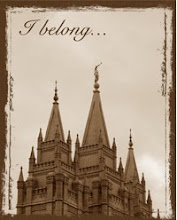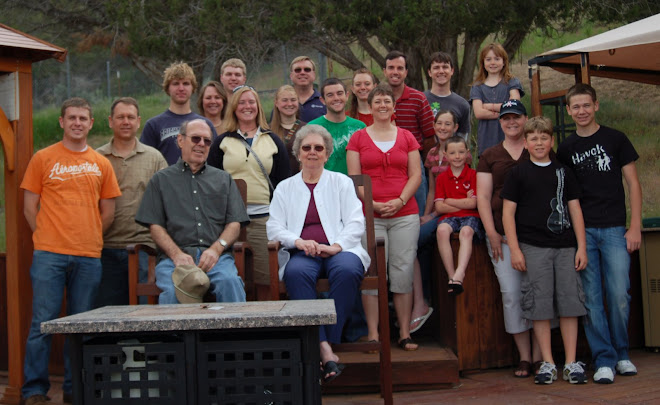The Easter Chronicles: Saturday
Christ journeys to Bethany. Today, Christ will be at the home of Mary, her sister Martha, and Lazarus, their brother - the same Lazarus that he recently raised from the dead (after three days of death).
With the Apostles watching, Mary will anoint the feet of Christ with Spikenard. This Spikenard that she anoints Christ with, is very expensive oil. She uses it so liberally, that the fragrance of the oil fills the home. She is anointing Jesus as he is about to begin the last week of his life. She is anointing him the day before his triumphant entry into Jerusalem, which happens on Sunday.
Watching all of this, and smelling the fragrance of the oil as it permeates the air, is the Apostle who has been designated as the treasurer, or he who "had the bag". The apostle who "had the bag" was Judas Iscariot----the eventual betrayer of Christ. So, feigning concern about finances, though he is known to be a thief by the others, Judas asks if the money expended for the oil could not have been better used to care for the poor. A noble question, but not from a man who ultimately cares not about the life of the Messiah, nor his works, and is actually a thief himself.
Christ, hearing these pretentious words from Judas, says to leave her alone and clarifies that the woman is doing a great deed by preparing him for his burial. A burial which occurs in the upcoming week.
The Easter Chronicles: Sunday
It's Palm Sunday.
(Christ spends the evenings at this time in Bethany. Bethany is just over the hill to the East of Jerusalem, about 4 miles. Daily he traverses this route along the Mount of Olives between Bethany and Jerusalem.)
Today, Christ enters Jerusalem on a donkey, symbolic of the entry of the expected Messiah-King. Crowds cheer him. They wave palm fronds in front of him - which are also symbolic of a King. Many openly accept him for what he is claiming to be... the Messiah. The crowds are in Jerusalem, in preparation for the weeks celebration of the Passover to come. His arrival into the city, is no secret.
Because of the season of the Passover, it is estimated that there are 1 to 2 million people crowded into Jerusalem at this time.
The Easter Chronicles: Monday
As previously mentioned, because of the season of the Passover, it is estimated that there are 1 to 2 million people crowded into Jerusalem at this time. This is based upon some writings indicating the number of lambs killed upon the alters for the Jewish festival. The lambs are used in the Passover feast and are symbolic of the Messiah.
Each morning, Christ returns over the hill from Bethany along the Mount of Olives towards Jerusalem. (Remember, Bethany is the home of Mary, Martha and Lazarus and is only about 4 miles away.) This morning, he returns to the temple grounds in Jerusalem. The temple site is 40 acres square (Salt Lake LDS Temple is on 10 acres). To these Jews of the time, the entire 40 acres site is considered sacred and an extension of the temple itself. Along the inner-side of the outer perimeter wall, there exists colonnades which support some roof structures. Under these coverings, the wise and learned leaders of the day would gather together. On this day, Christ approaches them, to cleanse the temple grounds of money changers. When he cleansed the temple grounds 3 years earlier, at the start of his ministry, he said, "You have made MY FATHER'S house a den of thieves." However, this time, days before his crucifixion, he refers to the temple as "HIS house". This is a bold and open declaration that he is a god and a Son of God. He is openly declaring who he is... and they know it. This is what leads to problems.
The Easter Chronicles: Tuesday
Christ leaves Bethany with the twelve apostles. They skirt along the Mount of Olives which separates Jerusalem from Bethany. Along the way, they pass by a fig tree. Christ hungers, and the tree looks inviting, so he raises the leaves to pick some fruit. However, though it is Spring, and the tree appears fruitful, there is no fruit to be found on the tree. As a lesson, he then curses the tree for hypocrisy. When it was cursed by Christ, the apostles were amazed at how quickly it began to wither away. A great reinforcement of the lesson of hypocrisy. Have great big beautiful shiny leaves and appear to be a tree of great fruit and worth, but under the outer layer, you have no fruit. You feign the appearance of greatness yet beneath it all, you are a phony. Whether this cursing of the tree occurred on Monday, or Tuesday, it is not clear, but imagine the impact of this message, as each day for the rest of the week, while walking between Jerusalem and Bethany, you see this continually decaying and dying tree of hypocrisy.
This message becomes a greater reality, later this day, when Christ confronts the Pharisees and leaders of the day on the temple grounds.
They reenter the 40 acres of the temple grounds. Once again, he is faced with the wise guys of the day. They are under the southern portico, teaching the people and debating this "Christ" who has made a shambles of their market and their teaching. Christ confronts them, in this public forum, with 3 great embarrassing and humiliating parables. The 3 parables are: (1) The parable of the two sons, (2) the wicked husbandmen, and (3) the wedding of the king's sons. The parables make reference to murder, hypocrisy, theft, and other forms of wickedness against God and his son. These three stories are an indictment of the corrupt and wicked "leaders" of the people... and everyone knows it! Christ has shamed or exposed these men as frauds and hypocrites in front of the mass of people gathered together at the temple grounds that day.
Stay tuned... they are going to try to get even with him for this, and many other reasons too.
Christ's public ministry has come to a close. What he started three years ago, is now about to end.
He then retreats to be with his apostles, disciples and believers. Presumably on the Mount of Olives, which over looks Jerusalem from the east. Here he denounces wickedness and delivers the Olivet Discourse. The Olivet Discourse includes the great parables of the ten virgins, sheep and goats and talents. The story of the ten virgins is about getting oil in your OWN lamps and not relying on others to give you the oil that you should have yourself. Sheep and goats...they sound alike, but there are not alike. You really need to be a sheep that follows the True Shepard---- not a goat who don't. Talents. What can be said here? Do the best with what "talents" (i.e. gifts), that you've been given in life. It's not a contest to be better than the other guy, it's a contest to be better today than you were yesterday. Books have been written about the Olivet Discourse alone.
The Easter Chronicles: Wednesday
We're reaching high drama here.
Wednesday is a day of conspiracy and betrayal. The chief priests and evil religious leaders of the day, gathered together to plot how they might kill this growing threat to their power and influence. They met at the house of Caiaphas, who was head of the Jewish legal body called the Sanhedrin. As they conspired and plotted about how to end the threat posed by the man of Nazareth, an unexpected visitor arrived on the scene. Into this scene of conspiracy enters Judas Iscariot, one of the 12 apostles. One of 12 men given the opportunity to spend the previous 3 years walking with Christ, seeing the blind healed, the lame walk and the dead to rise. He has come to make a deal to betray The Messiah to these enemies. They negotiate the price of Christ's blood at 30 pieces of silver. This is presumed to have eased their conscience with a distorted interpretation of the law as outlined in the book of Exodus (Old Testament). Here it talks of the price of purchasing a slave as being 30 pieces of silver. So, having agreed on their price---30 pieces of silver---- Judas has agreed to deliver the Messiah, the Savior of mankind, the creator of heaven and earth to evil men to be put to death.
Not much is known of what Christ did on this day. His public ministry has come to a close. At this point in his mortal existence, knowing all things, he did say to his disciples "Ye know that after two days is the feast of the Passover, and the Son of Man is betrayed to be crucified". He did know of his impeding death and he did know of Judas' betrayal of him. It may be appropriate to assume, that with the remaining 11 apostles, he spent time on the Mount of Olives, where he often retired. Since it is recorded that he openly told them of his impending death, it would seem that he was preparing them for his departure and giving them instructions on what to do when he is gone. By the way, all of the books within the Bible written after the 4 gospels (Matt, Mark, Luke, John) are ALL instruction of what we all should do now that He is gone.
How far will you go in justifying something? How much will you distort the laws in pursuit of your own greed and power? What are you willing to do for 30 pieces of silver?
Note: Christ = Messiah = Savior. "Christ" is Greek for "Savior" and "Messiah" is Hebrew for "Savior". "Savior" is Latin for one who brings salvation/eternal life as used in the Christian context.
~~~~~~~~~~~~~~~~~~~~~~~~~~~~~~~~~~~~~~~~~~~~~~~~~~
From this point on, I'll post each day separately. I hope this helps you and your families, as you try to focus on Easter this week. I love that Phil does this. It's a great reminder each day, of what Christ went through. It's also helpful if you want to follow this journey, as it happened, with your family.
Tomorrow, I'll let you know the name of a book written by some friends of ours - ideas about celebrating during the week of Easter. I just have to find it first! ;-)






















No comments:
Post a Comment